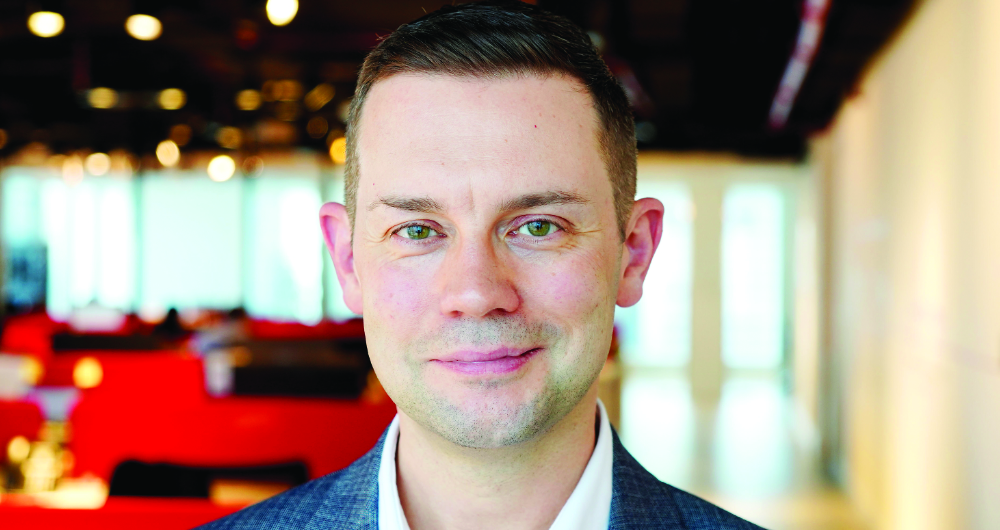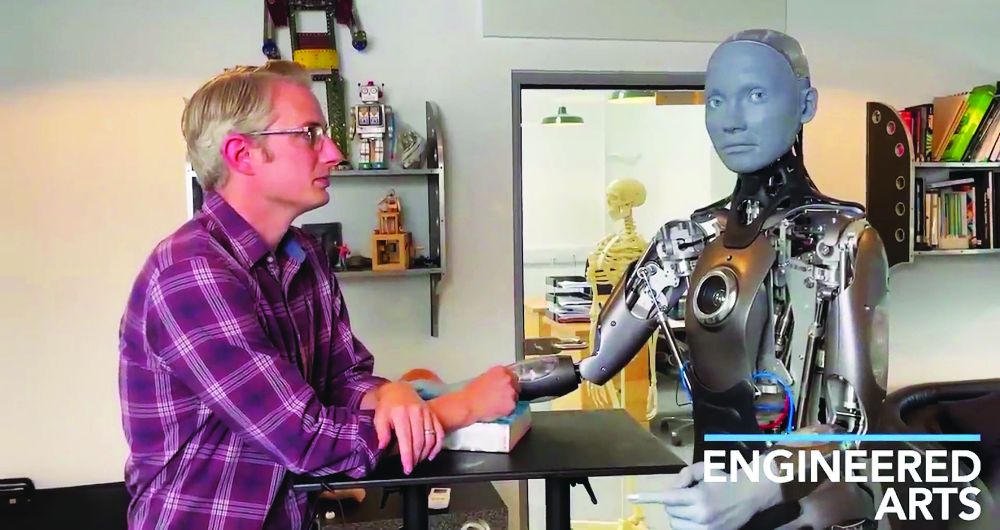DUBAI: Over a third of Middle Eastern employees worry that their jobs will be replaced by new technologies over the next three years, according to a PricewaterhouseCoopers survey released in
June 2022.
According to PwC Middle East’s Workforce Hopes and Fears Survey 2022, 32 percent of the employees said their companies use technology to improve the workplace, slightly higher than the global survey average.
However, around 41 percent of the surveyed people were worried about new technologies replacing their jobs over the next three years.
So, the question that may arise in their minds is: Will robots take over jobs? Short answer, no.
Scott Nowson, the artificial intelligence leader at PwC Middle East, told Arab News how these fears are unfounded because more use cases will emerge as technology advances. As a result, more value will be gained from investing in robotics, designing new experiences and envisioning new ways to live and work.
“As this happens, the knock-on effect will be that more people are required to train the robots, demonstrate how a task is to be done and create the rules that the robot should follow,” he added.
What they are up against
According to Nowson, robots will not displace most jobs soon or in the long run. While some jobs will be automated, there will be an increased demand for people to work in other areas, which means more job opportunities, he added.

Nowson said that most robots are purely functional and capable of performing only one task. Today’s most advanced robots include Boston Dynamics’ range — robots that can navigate uneven woodlands and dance.
“There has been no negative impact on job opportunities, except on the industrial level, which has not been widely adopted in the regional market,” Doaa Sulaiman, robotics director of Proven Robotics, told Arab News.
“Technology will free us from routine toil and give us the freedom to redefine work in ways that are more constructive and useful to society,” she added.
Despite doubters, technology has created millions of jobs and makes up 10 percent of the US’ gross domestic product, according to Sulaiman.
Proven Robotics, based in the UAE and Saudi Arabia, works with customers who require robotics for visitor management, process automation and acceleration of functions that require a robot instead of a human. These companies and entities range from banking and healthcare to education and events.
“Other companies are government offices that need to organize the check-in process for their buildings and facilities,” she added. Adding to the robotics world is Ameca, an AI-powered humanoid robot that will interact with Dubai’s Museum of the Future visitors.
The AI-powered Ameca, manufactured by the UK-based Engineered Arts, is described as a perfect platform for human-robot interaction. Her “smooth, lifelike motion and advanced facial expression capabilities mean Ameca can strike an instant rapport with anybody,” the manufacturer’s website said. According to a statement, the humanoid robot Ameca is considered the “most advanced” in the world.
The new-age workforce
Anas Batikhi, the managing director of health tech firm Santechture, believes that such technologies will ultimately shift focus to developing workforce talent and investing in people skills development rather than process improvements.
The company uses AI through its software solutions to help healthcare professionals administer, document and bill patients intelligently.
Communication and technological understanding is critical, said PwC’s Nowson.
The fact that 53 percent of respondents in the region reported limited opportunities to learn from colleagues with advanced technological or digital skills is concerning, he added.
It is difficult for companies to use AI and robots as the technology is not fully understood, primarily because traditional management thinking is skeptical toward change and lacks innovation when it comes to medium- and long-term investments, according to Batikhi.

Therefore, if robotics is to be introduced at scale to any workforce sector, there must be a better understanding and awareness of its impacts. Most importantly, opportunities for education and additional skills must be provided for all, Nowson said.
Over the past two years, businesses have started to seriously look at robots and robotics solutions as contributing to business processes instead of just for show, Sulaiman said.
“AI is changing how we work,” she said. Tech companies are creating jobs and opportunities for employee growth by adapting to these technologies, Sulaiman added. AI now automates repetitive tasks so employees can focus on more critical tasks.
While AI technologies have improved and advanced many functions everywhere, including office processes, airports and facilities, physical robots still have a long way to go, Sulaiman said.
For handling everyday robot processes, it is considered a vital training aspect and a skill that most entities, especially universities and schools, are adding to their resource pools, Sulaiman added.

“A unique curriculum has been added to pregraduate and postgraduates studies, with many graduation projects now focusing on robots and robotics,” she said.
There are many ways available for Proven Robotics clients to adopt robotics solutions in their operations, from welcoming visitors and making boardroom reservations to delivering mail and food.
Therefore, Nowson concluded that the intention behind robotics and AI is to augment humans, not replace them.
Companies are always looking for ways to automate new tasks at work, and robotics is just one example.
In dangerous physical environments, automation reduces the risk of human life, but it can also reduce burnout in an office setting, Nowson said.
“Even if a task is 99.9 percent identically repetitive, there will always be a need for a human for the remaining 0.1 percent,” he concluded.















